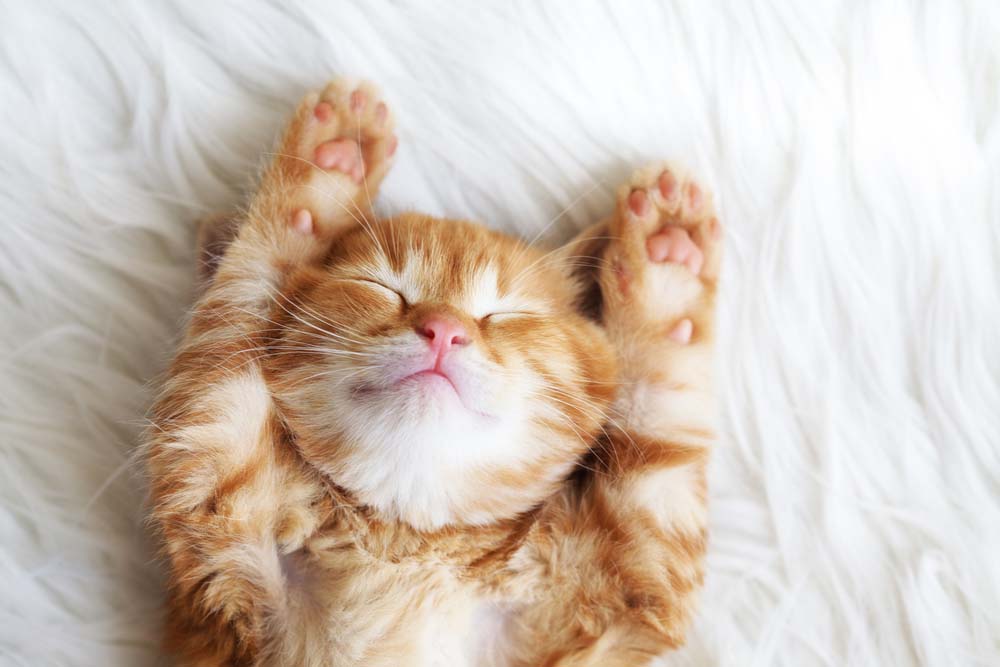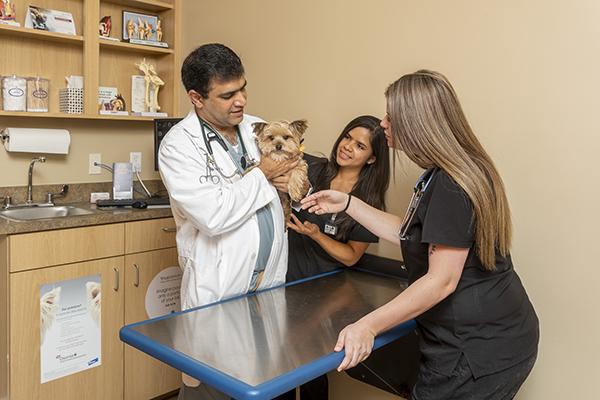
If you’ve recently adopted a new kitten, you’re probably curious if the behavior during their first year is a normal part of development.
Kittens can go through a wide range of changing behaviors in the first year, so it’s crucial to know that there is little concern during this period as they learn and grow within their environment. However, if you feel concerned that your kitten’s behavior is abnormal, always ask a vet for a consultation to get to the root cause of any troubling behavior.
0-8 Weeks
Neonatal
From birth until about 8 weeks of age, a kitten is in the neonatal stage of development. During this time they are dependent on their mother for warmth, feeding, and a sense of protection. By the second week, usually, their eyes will begin to open and they will see the world for the first time. Typically, a kitten is with their mother during this period. In cases where the mother is unable to care for the kitten, however, human owners may have to bottle-feed the kitten because they’re not old enough to be weaned.
What Can Help During a Kitten’s Neonatal Period?
Try giving your kitten some extra comfort and reassurance through pets and cuddles, as they may feel fearful or aggressive after being separated from their mothers.
8-12 Weeks
Socialization
After they are out of the neonatal period, they will begin to be socialized with their new family. During this time kittens are especially curious and open to new experiences. They may be sniffing out the lay of the land for their new home and owners, and may even try to groom themselves or others. This time is especially crucial for the development of their motor skills and other senses, so they may be increasingly attuned to the sights and sounds of their surroundings.
What Can Can Help During a Kitten’s Socialization Periodi?
Start feeding them at regular intervals to help your kitten understand their new home and the people within it.
12-14 Weeks
Active Play
Active play is the most energized time in a kitten’s development. Their physical energy is through the roof and they focus on object play or social play. The “play period" isn’t just for fun, though. It’s a time when your kitten is practicing their coordination and endurance to become a self-sufficient adult cat. Your kitten may engage in some rough play here such as biting or scratching, however, some of those behaviors will likely pass as they get older.
What Can Help During a Kitten’s Active Play Period?
Engage your kitten in daily activities, whether that be one-on-one games or giving them small toys to toss around.
3-6 Months
Ranking and Companionship
During the ranking and companionship period, your kitten may start to understand where they stand compared to other cats, other animals in the home, and even where they stand with their human owners. They may begin to display behaviors of dominance or submission. Whether they fall into a dominant or submissive role in the household could be influenced by their original litter, or it could be influenced by how many other people and animals live within the household.
What Can Help During a Kitten’s Ranking and Companionship Period?
Get them comfortable with any other species you have in the house, whether that be other pets or other humans so they understand their relation to other creatures.
6-18 Months
Adolescence
Once your kitten hits the half-year mark, this is when their teenhood begins. Similar to human teenagers, kittens may now start to push boundaries and assert their personalities. They may be challenging their owners and testing out new levels of dominance in the household. If your kitten has not been neutered or spayed at this point, they may also begin to exhibit sexual behaviors.
What Can Help a Kitten During Adolescence?
During a kitten’s adolescence, make sure they have an outlet for all this new energy. Interactive play and stimulation between the owner and your adolescent cat can help keep them happy and engaged instead of mistrustful.
What To Do If You’re Concerned About a Kitten’s Behavior
Just like people in childhood, kittens can go through many different stages of life. It’s essential to know that a kitten’s rapidly changing attitudes over the first year are normal as they learn about themselves and their surrounding environment. Despite these changes, if you feel your kitten is displaying atypical behavior that we haven’t addressed, always make an appointment with a veterinarian to discuss possible causes and solutions.
Looking for the right veterinarian?
Contact us to schedule an appointment.
Contact us


